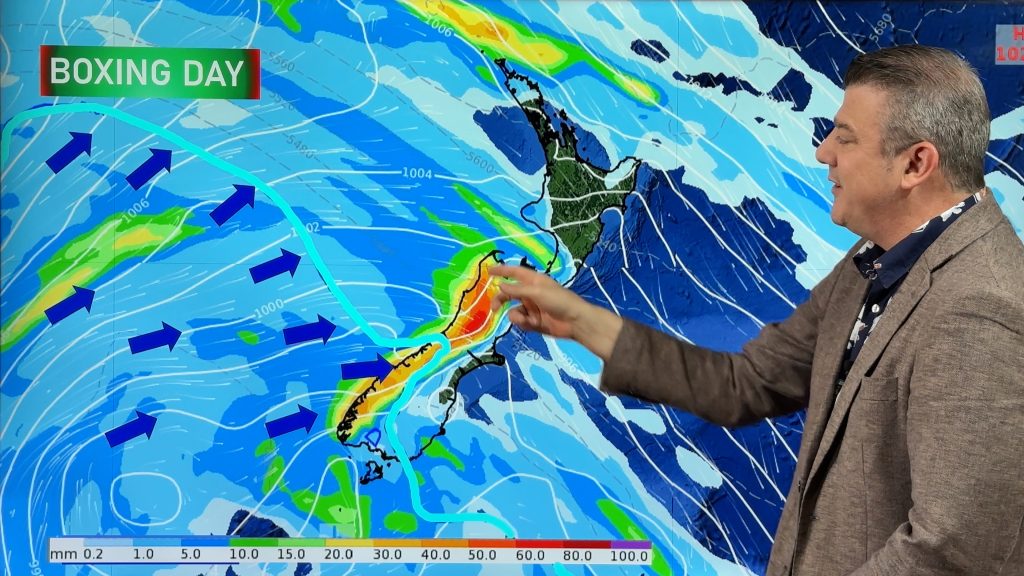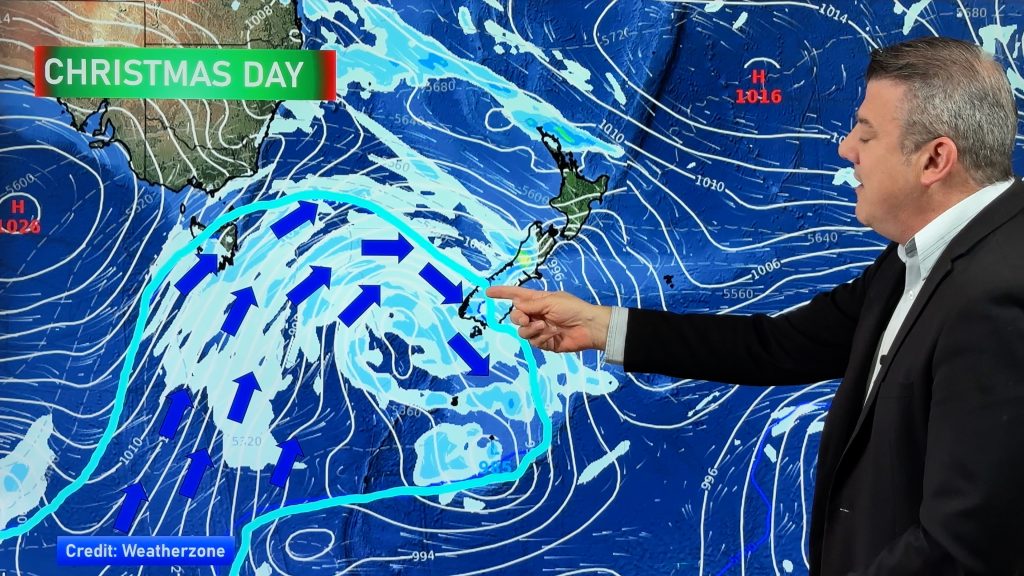
> From the WeatherWatch archives
Human beings seem to be attracted to danger. I was thinking about this following the new swarm of violent earthquakes in Christchurch. There are only a handful of cities in New Zealand that have a large population (over 200,000) and when you look at a map of New Zealand the cities of Auckland, Wellington and Christchurch barely even show up.
So much of this country is farmland and forest. So isn’t it incredibly unfortunate that these powerful earthquakes are happening right next to one our largest cities? Isn’t this bad luck? Well…it is, but when you look at our country you realise that in reality, most of us are at risk – it simply comes down to whether or not a natural disaster will happen in our lifetime.
You don’t have to look for long to see that most of our cities are in fairly unsafe places. Auckland has dozens of volcanoes – the last to erupt was Rangitoto and Maori witnessed it – it wasn’t that long ago in historical terms. Rotorua is built on a crust of earth so thin that mud and water boils at the surface and geysers have been known to suddenly erupt from backyards.
Mt Maunganui is built on a low lying sand spit with an extinct volcano at one end and our most active volcano just offshore posing a constant tsunami risk. Taupo is built on the crater of one of the earth’s most explosive ever eruptions. A force that was so powerful the glow was seen in China.
Gisborne and Napier not only face major earthquakes but just offshore lies a deep trench that poses our most serious and immediate tsunami risk – a similar landscape to that off the Fukushima coast in Japan. On the other coast New Plymouth lies next to active Mt Taranaki.
Wellington – a major tectonic fault line passes under this city. It’s not a matter of if, it’s a matter of when.
Queenstown lies in the mountainous area of the Southern Alps – again along a fault line that produces some of New Zealand’s most powerful earthquakes.
But coming back to Christchurch… well this is where I have huge sympathy for those that live there. This city, known as the Garden City, and to some NZers it was the city that didn’t act like a city, it never had the hustle and bustle that Auckland, Wellington and Tauranga have – so it was the last place that most of us expected such horror from mother nature. Especially in this form.
In New Zealand it’s hard to escape natural disasters…the earthquake-free north is prone to cyclones and monsoon type floods. The deep south is prone to snow storms and earthquakes. The west gets tornados and thunderstorms, the east gets earthquakes and has a tsunami risk and central areas have volcanoes or earthquakes.
While some consider the city of Hamilton the butt of many jokes, in my view it’s probably our safest city when it comes to the risk of natural disasters…unless Taupo erupts again, which is fairly unlikely in our lifetime.
So who on earth would want to live here? In reality, we know we live on very active land but the beauty of living in this country far outweighs any risk of living here. I’ve travelled the world and I’d far rather risk an earthquake than walk down a street where carrying guns is legal. Or live in a nation torn by drought or war. To live in a country where freedom of speech isn’t allowed or where a storm can kill millions due to poor infrastructure.
Despite the recent earthquakes New Zealand to me is still the safest and most beautiful country on the planet. I don’t think I’m blinded by love either. Facts back up just how safe it is to live here.
As a nation we’ve had a lot of negative publicity this year. Earthquakes, tsunami, tornados, ash clouds, cyclones, landslides, lightning strikes, flooding and now a lack of snow.
But despite all the ugly… this nation is still looking as beautiful and as attractive as ever. The residents of Christchurch do have a long road ahead of them – but history has proven time and time again that events like this usually leave a community stronger, a public more prepared, and produce a landscape more beautiful than ever.
– Homepage image, Ben Haarmann
– By Philip Duncan, Head Weather Analyst
Comments
Before you add a new comment, take note this story was published on 25 Jun 2011.




Add new comment
Phil on 18/03/2012 4:34am
Don’t forget that both Christchurch and Dunedin have volcanoes, however they are considered to be extinct for 6-11 millions now.
It is dangerous to live anywhere on the southern alps because earthquakes also occure there.
Anyway, these natural disasters are more preferable than human-caused disasters eg. pollution to environment, nuclear explosions, famine, Aids, violent crimes, lack of personal freedom due to dictatorships etc.
Reply
celtickiwi on 27/06/2011 12:48pm
The magnitude of Taupo eruption fascinates me no end!
When travelling, I often look at the landscape and question how much of it was formed and created by the seismic activity and ash fall of the Taupo eruption.
Phillip, you report that China saw its glow, but I have heard that China also heard it blow! Can anyone verify this information.
Reply
Guest on 25/06/2011 11:15pm
Lovely observations. I’d like to link to here, but all kiwis would probably be called morans there.
Reply
Doug Bowker on 25/06/2011 6:20am
As I have mentioned elsewhere here before, Christchurch as had good earthquakes before with the Cathedral spire suffering damage in 1888 and 1901 – there was great liquefaction in the 1901 one with 6 fatalities recorded as well. There’s been other good rattles in the city since then and I am surprised many ask why Christchurch?.
The Wellington fault has not produced a good rattle for 400 years as the 1855 one was on the Rimutaka fault in the Wairapara. Nevertheless, the 1968 Inanagahua earthquake in the Buller still managed to throw us out of bed in the Hutt Valley. They have built the Kaitoke water resevoirs, above Upper Hutt; very close to the Wellington fault yet pulled down the Moreton dam on the minor Wainuiomata fault as it was an earthquake risk. I wouldn’t want to be near the Hutt River if Kaitoke goes in a big rattle.
Other centres built on active faults are Franz Josef, Hanmer Springs, Blenheim, Nelson, Porirua, Waikanae, Waverley and Waipukurau.
I don’t thnk New Zealand is any worse off than most other places and I’ve seen enough natural disasters overseas that I’ll take my risks here. As the article demonstrates there are many other factors that make the decision to live in New Zealand an easy one.
Reply
Anna on 25/06/2011 4:06am
What a lovely article. Written from the heart. Thank you.
Reply
Derek on 25/06/2011 2:30am
What a great article Phil, you do write some good stuff..I agree entirely, NZ is the best place to be. I have a son in Utah, USA, been there for over 25 years but he still yearns for NZ. We lived in New Plymouth when he left, which I think is, after CHCH, the most beautiful city in NZ.
So if we all drop the negativity which is rampant at the moment, and look at what we have got and feel good about it we will see a big improvement in our thinking.
I was brought up in the English Midlands in an industrial city and I know which lifestyle I prefer. Have never yearned to go back & live, a visit was enough to make me realise I had done the right thing in coming here many years ago.
We are very lucky. Sack all the Pollies & would be even better..
Reply
Zelda Wynn on 25/06/2011 1:57am
Hey Phil, you forgot the risk of being struck by lightning,or squished by a bus or train. 🙂
Lots of drought here too.
Doesn’t traveling the world make you realise how tiny NZ is.
Canterbury people, not just Christchurch, face getting their communities fixed up.
Reply